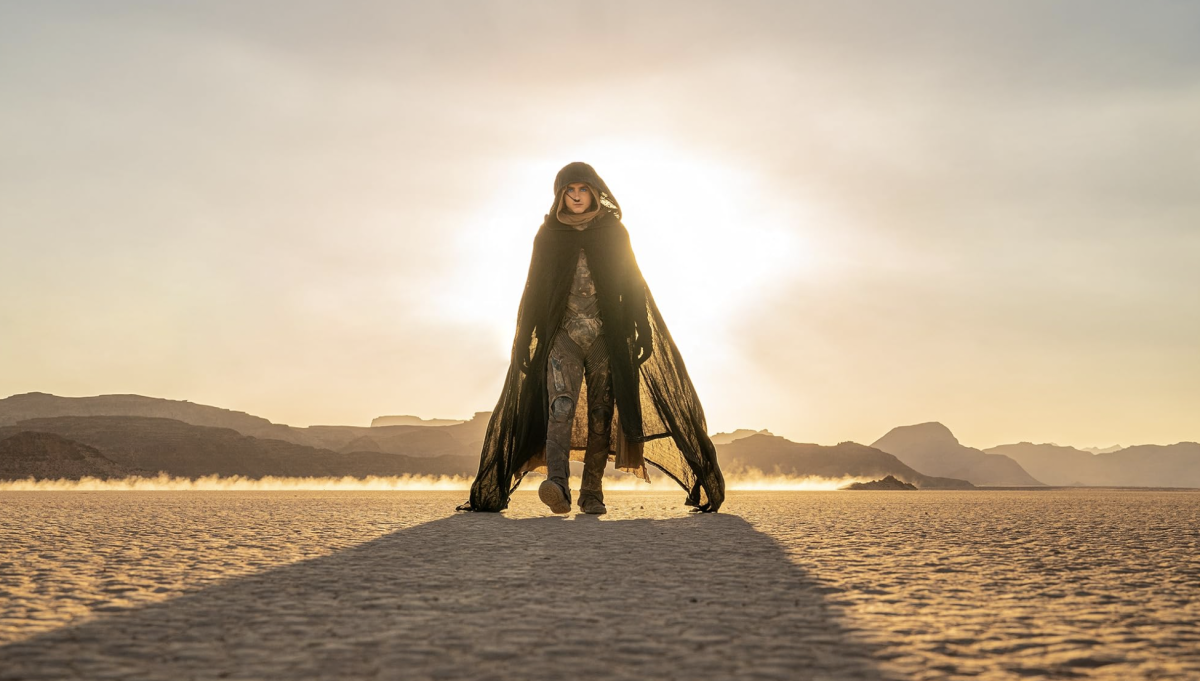On Tuesday, April 30, I sat down with Wheatus front man Brendan B. Brown to discuss the legacy of Wheatus, how social media has impacted their success, the meaningful connections with their fans and life on the road during their U.S. acoustic tour.
Rock band Wheatus was formed in 1995 by New York native Brown (guitar and vocals), with members consisting of Matthew Milligan (bass), Brandon Ticer (keyboard), Joey Slater and Gabrielle Sterbenz (backing vocals). The band is known for their hit 2000 song, “Teenage Dirtbag,” which gained massive success across the world and has been in resurgence on popular social media platforms like TikTok. Brown expressed that the fact that “Teenage Dirtbag” is still popular gives him “an overwhelming feeling of being fortunate.”
“It feels so strange because in that actual time, the snapshot of those years, we weren’t popular. We weren’t accepted or ubiquitous like we weren’t part of it, you know? And the fact that it’s come back around in this way is I think only has to do with this exact feeling maybe there’s like a feeling today where the identifying moments or pieces of art that feel like you can plug yourself into them no matter what or who you are or where you came from,” Brown said.
When “Dirtbag” was released, the song had huge success in the UK, Europe and Australia but failed to make it to the U.S. Billboard Hot 100. This is mostly due to the fact the U.S. rock groups that were popular at the time were playing what Brown referred to as “heavy boy music,” which was majorly popular due to the catastrophic events that occurred at Woodstock ‘99. Meanwhile Wheatus was playing laid-back, eclectic rock music, taking influence from groups and artists like LL Cool J, Metallica and Rush.
“Teenage Dirtbag” is one of those songs that anyone can relate to. In a time where identity is now being explored and expressed in so many unique ways, the song plays a role in self-expression and acceptance of humanity.

“If you can plug yourself into it and see yourself as one of the characters, no matter how you identify, if you can identify yourself into the song, then that is the thing that makes it come back,” Brown said. “I was addressing this weird, satanic murder that happened in my town, and I was addressing the need to find my musical identity and have it be something I could feel proud about, in the face of pushback from authority figures who thought it was devil music and all this stuff. That’s what I was doing. And that’s an identity story. But that’s not important. Now, what is important is that other people can feel contemporarily what they need to feel about their situation and see themselves in the narrative.”
In regards to who was in the audience at their show later that night at The Drake, it was mostly filled with college students eager to hear “Teenage Dirtbag,” with a few millennials and die-hard fans that have been around since the 90s.
Anyone who sees Brown perform can immediately tell that he loves any audience he performs in front of. Throughout the show, I was able to fully appreciate Brown as a true musician by witnessing his uniqueness, the meaningful interactions with his audience through his story-telling and cracking jokes, and raw talent that is rare to find. Brown was not only energized by the audience that night, he also connected musically with partner-in-crime Gabrielle Sterbenz, who has been providing backing vocals for Brown throughout their tour together.
“I always wanted there to be a female presence in the band for backing vocals and for songwriting and for whatever else. A collaborative kind of feeling. Even though I’m still the majority songwriter in the project, we don’t have to do that anymore,” Brown said.
Sterbenz has been a member of Wheatus since 2011, releasing solo music since 2015. She is also the opening act for “Wheatus Acoustic: Dirtbags Across America.” She played a few of her original songs including “The Breakup,” which resembles a similarly adolescent feel to “Teenage Dirtbag.”
Brown has been loving every minute of the acoustic tour. With seven albums out and over 70 songs on Spotify, they did not struggle when it came to deciding how to put on this tour.

“[Our songs] cover all these areas where we sounded like this on this record and sound like this. And with all of the process of making records, the technology has changed so much since we started, you know, this arc of the process…So a song is just a person with an instrument, telling the story. And those poems are the basic part of the whole thing,” Brown said. “So we’re trying to just go back to these and strip everything down to the just elemental piece of what we’re doing. And it’s almost like a reset for the United States. Because we have so much established touring history in other countries. But America for us has come and gone. And now it’s like, well, let’s reintroduce this music, just the bare bones version of it. That’s kind of what we’re doing.”
Brown and Sterbenz made the very bold and untraditional decision to not have a setlist for any show on tour, and instead, let the audience decide the songs.
“A lot of the time, there’s some person who’s been waiting to hear this song off of the B-side of our fourth album. Because it really means something to them. And that is the best, even if we haven’t rehearsed it, even if I know that I’m going to make a train wreck of the performance of that song. I’ll try it. Because somebody said, ‘You did this thing that I noticed’… That’s the obligation to the people who care about the music that we make,” Brown said.

One of the first songs that was shouted by a fan was “Truffles,” which Brown responded to as “one of their worst songs ever,” but since that fan (Derek) requested it, he pointed directly at Derek when singing the lyrics, “You, you think yer such a badass.” Brown played it as the fifth song.
According to what Brown shared with the audience, “Truffles” is about his experience going to an all-boys private Catholic school in the 1980s, where he heard the most obscene and vile insults that his peers would say to one another while in school.
The standout performances included “Fourteen,” “Tipsy,” “Leroy,” and, of course, “Teenage Dirtbag.” Before performing each of these songs, Brown shared the stories and background of the songs, helping the audience to truly understand and connect with Brown and Sterbenz’s performances.
“Fourteen” has dark lyrics, describing what it’s like to be taken advantage of at a young age. “Tipsy” refers to a night where Brown had a drunken and somber conversation with former One Direction (who infamously covered “Teenage Dirtbag” during one of their tours) member, Liam Payne, expressing that he wished their tickets were cheaper so more fans could afford to go to their concerts. “Leroy” is a song that shares the same melody as Rick Springfield’s iconic 80s song, “Jessie’s Girl,” which Brown sang some of the lyrics to.
Other songs included “Pretty Girl,” “Valentine,” “Hump’em n’ Dump’em,” “Wannabe Gangster,” “Christmas Dirtbag” (the Christmas version of “Teenage Dirtbag”), “The London Sun,” “Hey, Mr. Brown,” “Lemonade,” “The Story of William McGovern” and Willie Nelson’s “I’d Have to Be Crazy.”
“Teenage Dirtbag” was the last song. The audience sang along the entire time, but when they got to the bridge, he let the audience take over in singing it, creating a sweet and memorable moment.
After the show, Brown stuck around and talked to fans, taking pictures and getting to know the people who went up to him.
“I kind of still live for that quite a bit. Because that’s the best part of this whole process. This connection, where it’s like, you are instantaneously somebody’s BFF. And like, almost on a family level of understanding where it’s like, we get each other. We don’t need to send each other Christmas cards and celebrate each other’s birthdays, we understand each other on a level that goes beyond all of those things that weigh on those traditions,” Brown said. “It’s like a shared piece of the human experience of revelation or whatever, that comes when maybe when you start questioning things, the moment will come when you discover what hypocrisy is, or you suddenly have this moment of light, where you’re certain about who you want to be, and you’re not really concerned anymore about what everybody else wants.”
While some still may refer to Wheatus as a “one-hit wonder” band, they don’t seem to care. What’s important to them is that they keep these special moments with their fans alive, which seems to be one of the main reasons why the acoustic tour is happening in the first place.
Wheatus is just fine with being called the “Teenage Dirtbag band,” because according to Brown, “It’s the one song people know and we actually love it.”
Paige Hanson can be reached at [email protected] and followed on X @Paige_Hanson1.




















